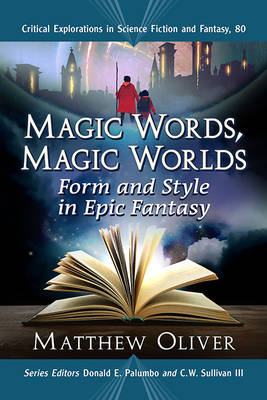
- Retrait gratuit dans votre magasin Club
- 7.000.000 titres dans notre catalogue
- Payer en toute sécurité
- Toujours un magasin près de chez vous
- Retrait gratuit dans votre magasin Club
- 7.000.0000 titres dans notre catalogue
- Payer en toute sécurité
- Toujours un magasin près de chez vous
Description
While all fiction uses words to construct models of the world for readers, nowhere is this more obvious than in fantasy fiction. Epic fantasy novels create elaborate secondary worlds entirely out of language, yet the writing style used to construct those worlds has rarely been studied in depth. This book builds the foundations for a study of style in epic fantasy. Close readings of selected novels by such writers as Steven Erikson, Ursula Le Guin, N. K. Jemisin and Brandon Sanderson offer insights into the significant implications of fantasy's use of syntax, perspective, paratexts, frame narratives and more. Re-examining critical assumptions about the reading experience of epic fantasy, this work explores the genre's reputation for flowery, archaic language and its ability to create a sense of wonder. Ultimately, it argues that epic fantasy shapes the way people think, examining how literary representation and style influence perception.
Spécifications
Parties prenantes
- Auteur(s) :
- Editeur:
Contenu
- Nombre de pages :
- 284
- Langue:
- Anglais
- Collection :
- Tome:
- n° 80
Caractéristiques
- EAN:
- 9781476687131
- Date de parution :
- 24-06-22
- Format:
- Livre broché
- Format numérique:
- Trade paperback (VS)
- Dimensions :
- 147 mm x 224 mm
- Poids :
- 226 g

Les avis
Nous publions uniquement les avis qui respectent les conditions requises. Consultez nos conditions pour les avis.






